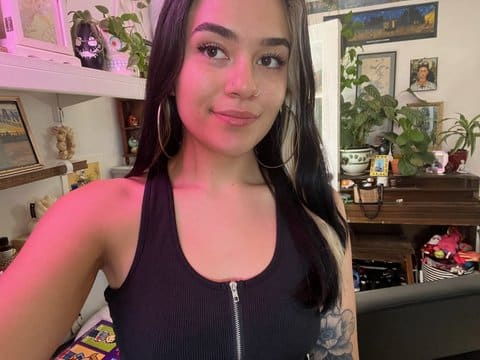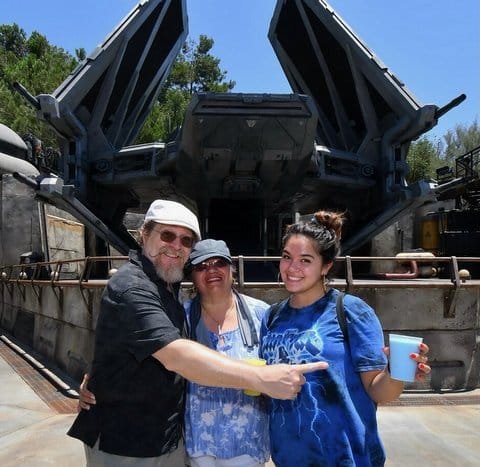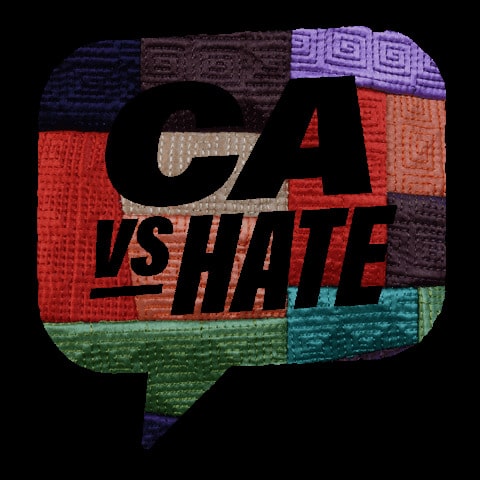
08 Aug Being Mixed Gives Me an Open Mind and Empathy

“For every racist thought they’ve had or microaggression they’ve muttered, being mixed has forced me to try and empathize,” the author writes.
Editor’s note: In this series, we tell the stories of mixed-race youth in the Bay Area. They share with us how they navigate other people’s preconceived notions and how growing up with more than one race and culture has shaped them and their worldview. At a time when people seem increasingly hateful and divided, they are living proof of love bringing people together.
Commentary, Natasha Kaye
All ethnically ambiguous people have heard the words, “What are you?” throughout our lives. For some, this phrase may evoke feelings of frustration and irritation, for others, it’s so common we’ve learned to laugh at it.
But for every time someone points that question in our direction, we have to figure out the best way to explain “what,” or rather, “who” we are.
My go to response is simple. I say, “I’m Peruvian and white.” I think it’s straightforward and if people are still left with questions, they can ask, but I don’t usually feel the need to explain myself any further.
Typically my response is met with something along the lines of, “I knew you weren’t fully white” or “I thought you were Asian!” Normally, these comments don’t bother me — I can’t blame people for being curious. But sometimes someone will say it with just the right inflection, with just the right amount of dismissal, that makes my existence feel as though it isn’t enough.
Being mixed-race, there were often moments I was told I wasn’t “Latina enough” or “white enough” to do x, y, z. Sometimes, these were jokes from friends or family, but sometimes they weren’t.
To some, my American last name and white father were enough to make them feel as though my claim to Latina status was unwarranted. To others, my brown eyes and tan skin were enough to pin me as the token person of color.
Either way, half of my identity was used to paint a complete picture of myself so it would fit neatly in their worldview. And either way, they were wrong.
Being mixed-race is exactly that — we are mixed. We are all the beautiful and all the ugly parts of our cultures, families and experiences, and that mixture is what makes us… us.
>>>Read: Love Across Color Lines: Multiculturalism Means More Not Less
Because I’ve grown up immersed in two entirely different cultures, I’ve always been eager to engage and experience customs different than mine. I’ve felt the pain of having one or both of my cultures ridiculed, so I’ve tried to move through my life with an open mind. I’ve grown up appreciating different traditions and embracing standards that others may feel are wrong because they aren’t theirs. It’s forced me to keep an open mind and consider how culture shapes us, especially when others may try to dismiss aspects they don’t understand.
I truly believe my mixed heritage has allowed me to develop such a passion for journalism, for seeing the other side and trying to understand instead of judge. Especially at a time like now, when cancel culture is rife and discourse is limited, I find it easier to withhold judgment because I’ve most likely heard my own loved ones say something we now consider problematic.
- “Either way, half of my identity was used to paint a complete picture of myself so it would fit neatly in their worldview,” writes the author, seen with her white father and Peruvian mother. “And either way, they were wrong.”
When I hear my Latino uncles say derogatory statements about the LGBTQ+ community, I don’t attack them; I ask them why they feel that way, and without fail, their answers come back to a deeply rooted sense of machismo — something that as much as I despise, I know is embedded in our culture. I don’t think it’s my job to change them, but I do think it’s my job as a journalist and a loved one to understand and empathize, even when I wholeheartedly disagree.
In a similar vein, when I hear my conservative, white family complain about immigrants “taking over,” I know attacking them and labeling them as racists will do nothing to help. Trust me, I’ve had my fair share of moments holding back screams and tears feeling as if my own family doesn’t even want my mom here, and honestly, maybe they don’t, but for every racist thought they’ve had or microaggression they’ve muttered, being mixed has forced me to try and empathize. In talking to them on their anti-immigrant views, it’s clear it all comes down to fear. Fear of change, because as white people in America they’ve always had it pretty good, and seeing different colors switching things up and threatening their status is scary to them. As a mixed-race person from the Bay, obviously that idea feels ridiculous, but for white people in rural America, I can see how that can be scary.
To some, my stance on this may feel wrong. You may believe it’s my job to educate and reject problematic notions wherever possible. But I disagree. I cannot put that burden on myself all the time so instead, I chose to listen and learn. It’s OK — we can agree to disagree. I think we need more of that in this world. After all, I think agreeing to disagree is how my two families have stayed relatively civil throughout the years.
So to all my mixed-race people out there, I get it. Balancing two or more cultures at once is always a challenge, but it’s a beautiful one and one we must remind ourselves to be grateful for.
This resource is supported in whole or in part by funding provided by the State of California, administered by the California State Library in partnership with the California Department of Social Services and the California Commission on Asian and Pacific Islander American Affairs as part of the Stop the Hate program. To report a hate incident or hate crime and get support, go to CA vs Hate.







No Comments